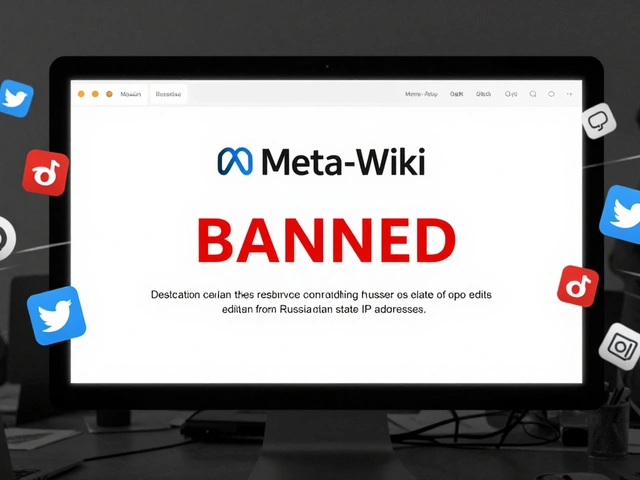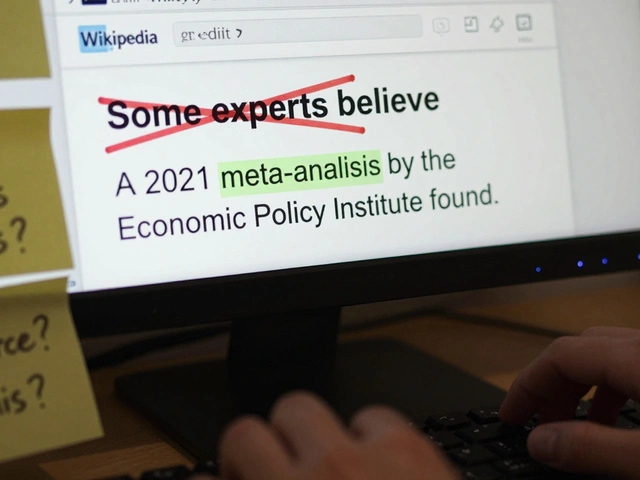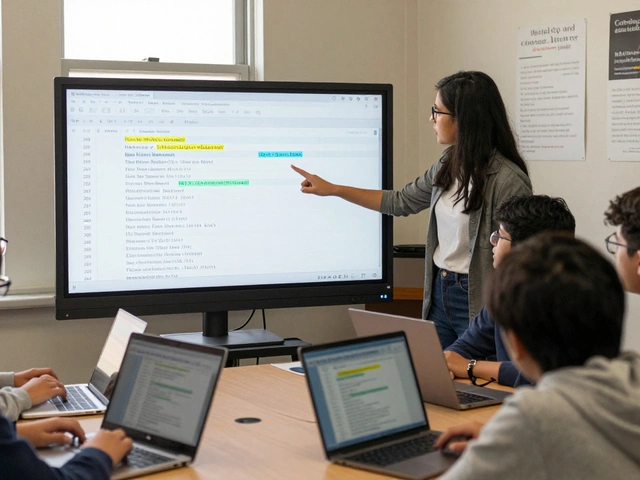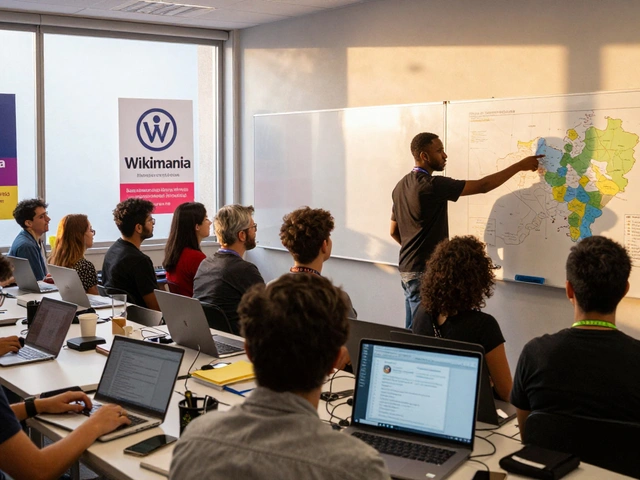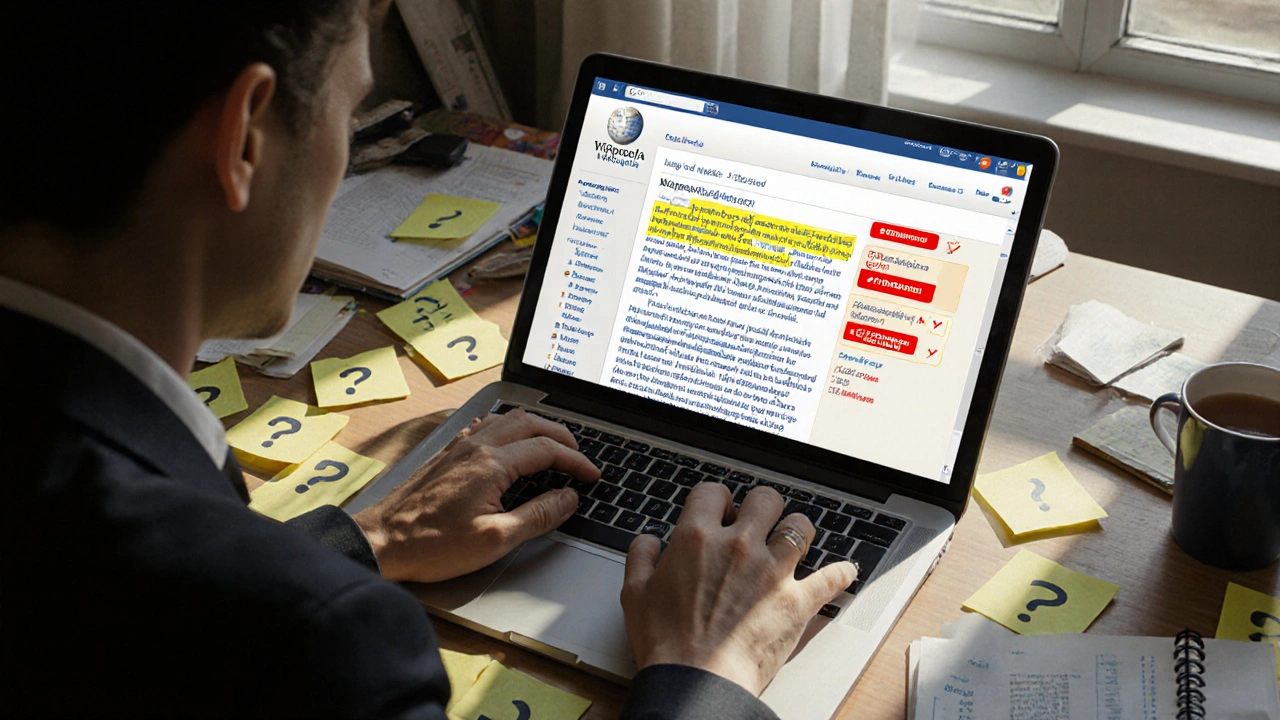
Wikipedia is the first place most people go when they need to check a fact. For journalists, it’s not a source-it’s a starting point. But too many still treat it like a reference book, copying quotes or stats directly into stories. That’s dangerous. Wikipedia isn’t peer-reviewed. It’s edited by volunteers, some anonymous, some with clear biases. But here’s the truth: when used right, Wikipedia can save you hours and point you to real sources you’d never find otherwise.
Understand How Wikipedia Works
Wikipedia articles are built on citations. Every claim should have a reference to a reliable source-news articles, academic papers, official reports. If a sentence doesn’t have a citation, it’s not trustworthy. If a whole section says "citation needed," walk away. Don’t ignore those tags. They’re not glitches-they’re red flags.
Look at the talk page too. That’s where editors argue about what stays and what goes. If there’s a heated debate over a statistic in the article, that’s a sign the information is contested. A quiet talk page with a few clean edits? That’s usually a good sign.
Check the edit history. Click "View history" and see how long the article has been stable. If the same version has been live for over a year with no major changes, it’s likely well-vetted. If there’s a spike in edits right before your story deadline? That’s suspicious. Someone might be pushing an agenda.
Use Wikipedia to Find Real Sources
The best use of Wikipedia isn’t quoting it-it’s mining it for leads. Every footnote is a door to a primary source. That statistic about voter turnout in Ohio? The citation probably points to the Ohio Secretary of State’s official report. That quote from a scientist? The reference leads to their peer-reviewed paper in Nature or JAMA.
Don’t stop at the first link. If the Wikipedia citation is a news article from 2018, go find the original study it was based on. Many journalists miss this step. They take a newspaper’s summary as gospel. But Wikipedia often links to the original research, which is where the real data lives.
For example, if you’re writing about climate change and Wikipedia cites a 2021 IPCC report, don’t just copy the summary. Download the full report. Read the methodology. See which countries contributed data. That’s the kind of depth that separates good journalism from lazy reporting.
Watch for Common Pitfalls
Wikipedia has blind spots. It’s strong on U.S. politics, tech companies, and pop culture. It’s weak on local governments in rural areas, indigenous histories, and non-English-speaking regions. If you’re reporting on a small town in Wisconsin or a community in rural Kenya, don’t rely on Wikipedia at all. You’ll likely find nothing-or worse, outdated or inaccurate info.
Also, watch for "Wikipedia dumping." That’s when a PR firm or activist group creates a polished Wikipedia page to shape public perception. It looks official. It cites "reputable" sources-but those sources are blogs, press releases, or self-published books. Cross-check every citation. Is the source actually independent? Or is it the organization itself?
Another trap: outdated info. Wikipedia updates fast, but not always correctly. A company might have changed its CEO last month, but the article still lists the old one. Always verify with the company’s official website or a recent news report from a trusted outlet.
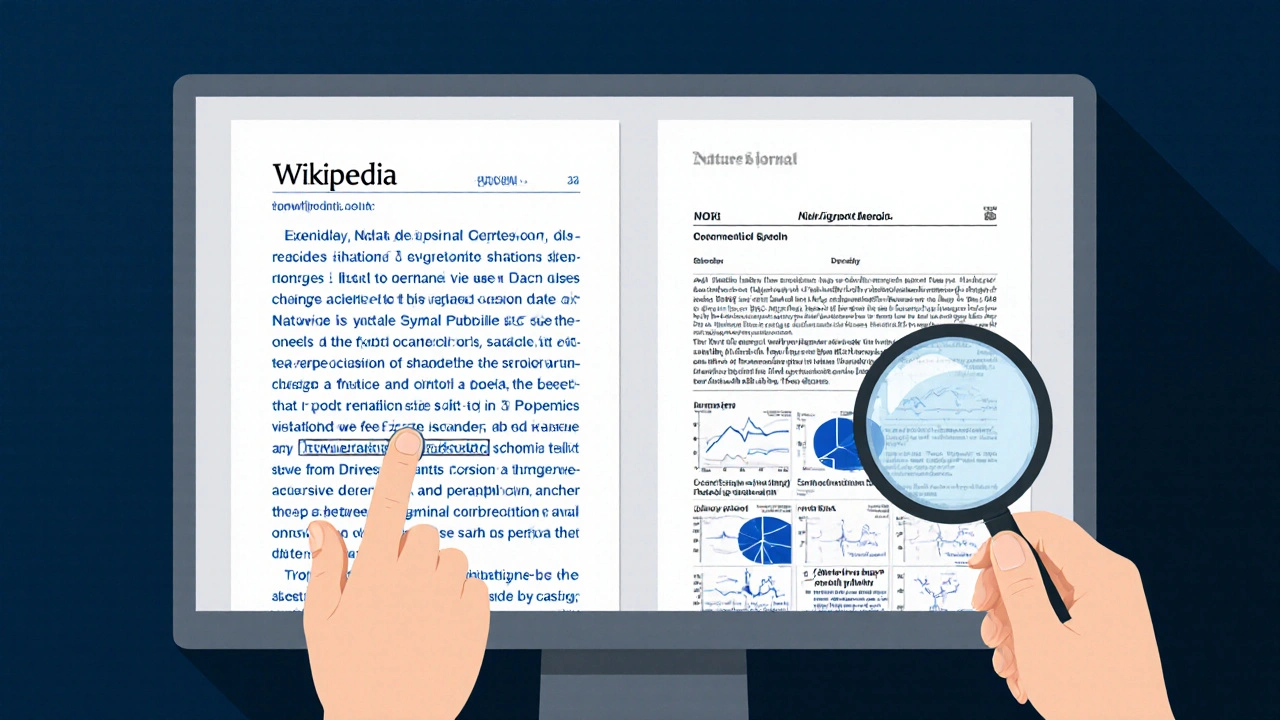
Verify Before You Quote
Never quote Wikipedia directly in a news story. Ever. Even if the sentence looks perfect. The rule is simple: if you’re going to print it, it must come from the original source. Wikipedia is a map. The real territory is elsewhere.
Here’s how to do it right:
- Find the claim you want to verify on Wikipedia.
- Click the citation number.
- Go to the original source-book, journal, government database, interview transcript.
- Read the full context. Is the quote accurate? Is the data being misrepresented?
- Only then, use the original source in your article.
This takes time. But it’s the difference between a story that holds up and one that gets retracted.
Use Tools to Speed It Up
You don’t have to do this manually every time. Tools like Wikicite (a browser extension) highlight citations on Wikipedia pages and let you export them as BibTeX or APA format. WikiCheck scans Wikipedia articles for flagged content-like "citation needed" or "fact check" tags-and gives you a risk score.
Some newsrooms use internal databases that pull Wikipedia citations into a verification dashboard. If your outlet doesn’t have one, start building it. Save the citations you find. Over time, you’ll create a personal library of verified sources.
Also, use Google Scholar. If Wikipedia cites a study, paste the title into Google Scholar. See who else has cited it. Is it widely accepted? Or is it a lone outlier? That tells you how solid the evidence is.
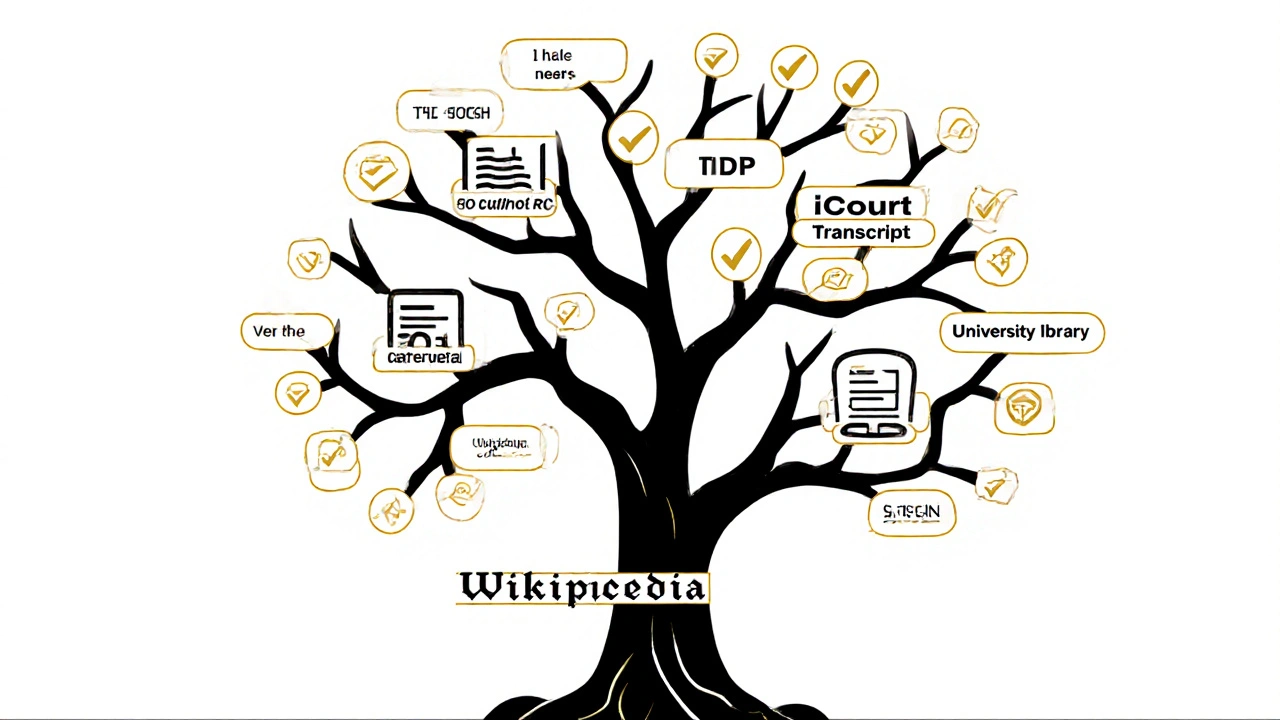
When to Avoid Wikipedia Altogether
There are times when Wikipedia is the worst place to start:
- Breaking news: Wikipedia lags. Real-time events are rarely updated quickly enough.
- Legal cases: Court documents and official filings matter more than any summary.
- Medical claims: Always go to the CDC, WHO, or peer-reviewed journals. Wikipedia’s medical content is often too simplified or contested.
- Opinions or controversial topics: Race, religion, politics-Wikipedia tries to be neutral, but the edits are often polarized. Trust primary sources from multiple sides.
In these cases, skip Wikipedia. Go straight to official records, court transcripts, or interviews with experts.
Build a Personal Verification Routine
The best journalists don’t just check facts-they have systems. Here’s a simple routine that works:
- When you hear a claim, write it down.
- Search Wikipedia. Look for citations, not the claim itself.
- Follow one citation to the original source.
- Find at least one other independent source that confirms it.
- Only then, write the story.
This takes five minutes longer than copying from Wikipedia. But it protects your reputation. It protects your outlet. And it protects your readers.
Wikipedia isn’t the enemy. It’s a tool. Like a hammer. Use it to find nails-not to drive them into your story.
Can journalists cite Wikipedia in their articles?
No, journalists should never cite Wikipedia directly in published work. Wikipedia is an aggregator of sources, not a primary source. Always trace claims back to the original publication-such as academic journals, government reports, or reputable news outlets-and cite those instead.
Is Wikipedia reliable for fact-checking?
Wikipedia can be reliable for initial fact-checking, but only if you verify its citations. Articles with multiple high-quality references and stable edit histories are often accurate. But always cross-check claims with the original sources. Never trust a Wikipedia summary alone.
How do I know if a Wikipedia article is well-researched?
Check three things: the number and quality of citations, the stability of the article’s edit history (long periods without major changes), and the talk page discussion. If editors are debating the content, it’s likely contested. If the article has been unchanged for over a year with consistent citations, it’s probably solid.
What should I do if a Wikipedia citation leads to a paywalled article?
Use Google Scholar or your library’s database to find free access. Many universities and public libraries offer free access to academic journals. If that fails, contact the author directly-many researchers will share a copy. Never accept a paywalled summary as proof; you need the full context to verify accuracy.
Are there tools that help journalists use Wikipedia for fact-checking?
Yes. Tools like Wikicite and WikiCheck highlight citations and flag problematic content on Wikipedia pages. Some newsrooms use custom dashboards that pull Wikipedia references into verification systems. Google Scholar is also essential for tracing academic citations back to original studies.
